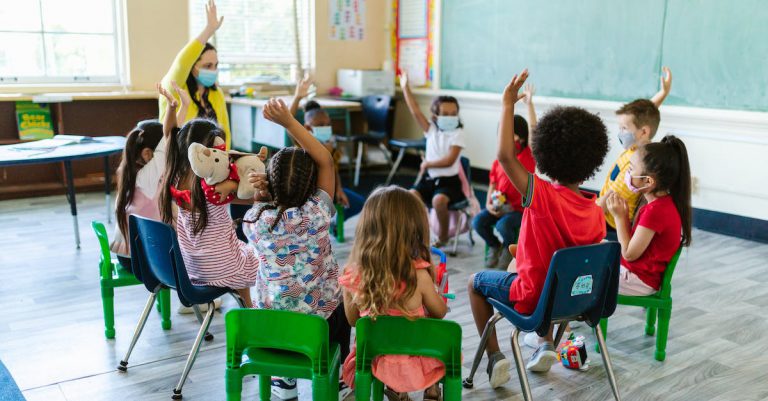As a high school student, failing a class can be a stressful and overwhelming experience. Not only can it impact your GPA and future academic opportunities, but it can also affect your mental health and self-confidence. So, what happens if you fail a class in high school?
If you’re short on time, here’s a quick answer to your question: Failing a class in high school can result in a lower GPA, a need to repeat the class, and potential consequences for extracurricular activities and college admissions.
Understanding Your School’s Policies
High school can be a challenging time for many students, and it’s not uncommon to struggle with a class or two along the way. If you do fail a class, it’s important to understand your school’s policies regarding grades and academic progress so you can make informed decisions about how to proceed.
Grading Systems
Most high schools use a letter grade system to evaluate student performance. A typical grading scale ranges from A to F, with A being the highest grade and F indicating failure. Some schools may use a plus/minus system to indicate slightly higher or lower grades within each letter grade. It’s important to familiarize yourself with your school’s grading system and understand what grades are necessary to pass a class and graduate.
Repeating Classes
If you fail a class, your school may allow you to repeat it in order to earn credit towards graduation. Some schools may require you to retake the class during the regular school year, while others may offer summer school or online options. It’s important to talk to your school counselor or advisor to understand the options available to you and the potential impact of repeating a class on your academic record.
Summer School
Many schools offer summer school programs for students who need to make up credits or improve their grades. Summer school classes are typically shorter and more intensive than regular school year classes, so they can be a good option for students who need to catch up quickly. Keep in mind that summer school may have additional costs and may not be offered for every class, so it’s important to plan ahead and explore your options.
Alternative Options
If repeating a class or attending summer school isn’t feasible for you, there may be alternative options available. Some schools offer credit recovery programs or independent study options for students who need to catch up on credits. You can also consider taking classes at a community college or online to earn credits towards graduation.
Remember, failing a class isn’t the end of the world, and there are many options available to help you get back on track. Talk to your school counselor or advisor to understand your options and make a plan for success.
The Impact on Your GPA
Failing a class in high school can have a significant impact on your Grade Point Average (GPA). Your GPA is an important measure of your academic success and is often used by colleges and universities to determine eligibility for admission. Here’s what you need to know about how failing a class can affect your GPA:
Calculating Your GPA
Your GPA is calculated by dividing the total number of grade points you’ve earned by the total number of credits you’ve taken. Each letter grade corresponds to a certain number of grade points, with A’s earning the most and F’s earning the least. For example:
| Letter Grade | Grade Points |
|---|---|
| A | 4.0 |
| B | 3.0 |
| C | 2.0 |
| D | 1.0 |
| F | 0.0 |
If you fail a class, you will earn a grade of F and receive zero grade points for that course. This can significantly lower your GPA, especially if the failed class was a high-credit course.
Transcripts and Records
Failing a class will also appear on your high school transcripts and records, which can be seen by college admissions officers and potential employers. This can impact your chances of getting into college or getting certain jobs, as it may indicate a lack of academic success or a poor work ethic.
However, it’s important to remember that one failed class is not the end of the world. Colleges and employers often consider other factors, such as extracurricular activities and personal achievements, when making their decisions.
College Admissions
If you’re planning on applying to college, failing a class can make the admissions process more difficult. Many colleges and universities have minimum GPA requirements for admission, and failing a class can bring your GPA below this threshold.
However, there are ways to mitigate the impact of a failed class on your college application. You can retake the class and earn a better grade, or you can explain the circumstances surrounding the failure in your application. For example, if you experienced a personal hardship or medical issue during the semester, you can provide documentation to support your case.
Dealing with the Consequences
Failing a class in high school can be a stressful and overwhelming experience. However, it’s important to know that it’s not the end of the world. There are several steps you can take to deal with the consequences and move forward.
Talking to Your Teachers and Counselor
If you fail a class, don’t be afraid to talk to your teachers and counselor. They can provide support and guidance on how to improve your academic performance. Schedule a meeting with them to discuss your options and create a plan for success.
During your meeting, be honest about your struggles and ask for their recommendations on how to improve. They may suggest additional resources or modified assignments that can help you catch up.
Exploring Tutoring and Support Services
Another option is to explore tutoring and support services. Many schools offer free tutoring programs, peer mentoring, and academic coaching. These services can give you the extra help you need to succeed in your classes.
Additionally, consider seeking help outside of school. Online tutoring services and private tutors can provide individualized attention and support tailored to your specific needs.
Managing Your Mental Health
Failing a class can take a toll on your mental health. It’s important to take care of yourself during this time. Practice self-care activities such as exercise, meditation, or spending time with friends and family.
If you’re feeling overwhelmed or anxious, consider talking to a mental health professional. They can provide support and guidance on how to manage your emotions and stress levels.
Remember, failing a class is not a reflection of your worth or intelligence. It’s an opportunity to learn from your mistakes and develop resilience. With the right support and resources, you can overcome this setback and achieve success in your academic journey.
Conclusion
Failing a class in high school can feel like the end of the world, but it’s important to remember that it doesn’t define your worth or potential. By understanding your school’s policies, focusing on your mental health, and exploring alternative options, you can overcome this setback and achieve your academic goals. Remember, it’s never too late to learn and grow.






